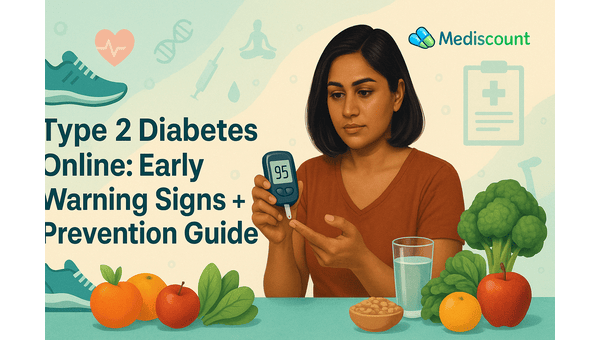The Benefits of Using Sunscreen
Nov 04, 2024
# The Benefits of Using Sunscreen: Protecting Your Skin for a Healthier Future
As the sun rises each day, it brings with it a myriad of opportunities for outdoor activities, relaxation, and enjoyment. However, alongside these benefits lies a significant risk: exposure to ultraviolet (UV) radiation. UV rays can lead to a host of skin problems, including sunburn, premature aging, and even skin cancer. This is where sunscreen comes into play, serving as a crucial barrier against the sun's harmful effects. In this blog post, we will explore the myriad benefits of using sunscreen, backed by research and expert opinions, to help you understand why it should be a non-negotiable part of your daily skincare routine.
## Understanding UV Radiation
Before diving into the benefits of sunscreen, it's essential to understand the types of UV radiation that can affect our skin. There are two primary types of UV rays that reach the Earth’s surface:
1. *UVA Rays*: These rays penetrate the skin more profoundly and are primarily responsible for skin aging and wrinkles. They can also contribute to the development of skin cancer.
2. *UVB Rays*: These rays are shorter and primarily responsible for causing sunburn. They play a significant role in the development of skin cancer as well.
Both UVA and UVB rays can be harmful, making it crucial to protect your skin against them.
## 1. Prevents Sunburn
One of the most immediate benefits of using sunscreen is its ability to prevent sunburn. Sunburn occurs when your skin is overexposed to UV radiation, leading to redness, pain, and peeling. A study published in the Journal of the American Academy of Dermatology found that regular use of sunscreen significantly reduces the incidence of sunburn. In fact, participants who applied sunscreen daily were less likely to experience sunburn compared to those who did not.
## 2. Reduces the Risk of Skin Cancer
Skin cancer is one of the most common forms of cancer in the United States, with millions of new cases diagnosed each year. The American Academy of Dermatology reports that regular sunscreen use can reduce the risk of developing melanoma, the deadliest form of skin cancer, by 50%. A long-term study conducted in Australia followed over 1,600 participants for over a decade and found that those who used sunscreen daily had a 24% lower risk of developing melanoma compared to those who did not.
## 3. Prevents Premature Aging
Sunscreen is not just a protector against immediate sun damage; it also plays a significant role in preventing premature aging. UV rays can lead to photoaging, characterized by wrinkles, fine lines, and age spots. According to a study published in Annals of Internal Medicine, daily use of sunscreen can help maintain skin appearance and prevent signs of aging. Participants who used sunscreen daily showed 24% less skin aging than those who did not use it regularly.
## 4. Protects Against Hyperpigmentation
Hyperpigmentation, or dark spots on the skin, can be exacerbated by sun exposure. This condition occurs when certain areas of the skin produce more melanin, leading to uneven skin tone. A study published in the Journal of Investigative Dermatology revealed that consistent use of sunscreen can help prevent the development of hyperpigmentation, especially in individuals with darker skin tones who are more prone to this condition.
## 5. Enhances Overall Skin Health
Using sunscreen regularly not only protects against sun damage but also contributes to overall skin health. Sunscreen can help maintain the skin's moisture barrier, preventing dryness and irritation. A study in the Journal of Clinical and Aesthetic Dermatology indicated that participants who used sunscreen daily experienced improved skin hydration and texture, leading to healthier-looking skin.
## 6. Provides Antioxidant Protection
Many sunscreens today are formulated with antioxidants, which help neutralize free radicals generated by UV exposure. Free radicals can damage skin cells and accelerate aging. Ingredients like vitamin C, vitamin E, and green tea extract are commonly found in sunscreens and can enhance their protective effects. Research published in the Journal of Photochemistry and Photobiology indicates that using sunscreens with antioxidants can further enhance skin protection and reduce oxidative stress.
## 7. Supports Long-Term Skin Health
The benefits of sunscreen extend beyond immediate protection. Regular use can support long-term skin health by reducing the cumulative effects of sun exposure over the years. This is particularly important for individuals who spend significant time outdoors, such as athletes, outdoor workers, and sunbathers. A comprehensive study published in Dermatologic Surgery found that individuals who consistently used sunscreen throughout their lives experienced less skin damage and maintained healthier skin in their later years.
## 8. Safe for All Skin Types
One of the most significant advantages of modern sunscreens is their formulation to be safe for all skin types. Whether you have oily, dry, sensitive, or combination skin, there are sunscreen options available that cater to your specific needs. For example, mineral-based sunscreens containing zinc oxide or titanium dioxide are often recommended for sensitive skin, as they provide a physical barrier against UV rays without irritating the skin.
## 9. Easy to Incorporate into Your Routine
Incorporating sunscreen into your daily routine is easier than ever. With a wide variety of options available, including lotions, sprays, gels, and even makeup products with SPF, you can find a formulation that suits your lifestyle. Dermatologists recommend applying sunscreen every day, even on cloudy days or when indoors, as UV rays can penetrate windows. Aim for a broad-spectrum sunscreen with an SPF of at least 30 for optimal protection.
## 10. Encourages Sun Safety Awareness
Using sunscreen regularly fosters a culture of sun safety awareness. By prioritizing sun protection, individuals can set an example for their friends, family, and children, promoting healthier habits for future generations. Education about the dangers of UV exposure and the importance of sunscreen can help reduce the incidence.
Recent Post

Mediscount's Guide to Better Digestion Online for Gut Health

Type 2 Diabetes Online: Early Warning Signs + Prevention Guide

High Blood Pressure – How to Lower It Naturally | Mediscount

How to Lose Weight Safely and Naturally: A Complete Guide by Mediscount

Top 10 Pain Relief Gels for Instant Relief from Muscle and Joint Pain

Top 10 Benefits of Creatine Monohydrate for Fitness and Brain Health

The Right Way to Take Creatine: Loading, Maintenance & Daily Usage Explained

Creatine Monohydrate: The Ultimate Workout Supplement for Strength and Performance

Power of Nature: A Complete Herbal Hair Oil Blend for Stronger, Healthier Hair

Daily Multivitamins, Multiminerals, and Antioxidants: The Foundation of Everyday Wellness


